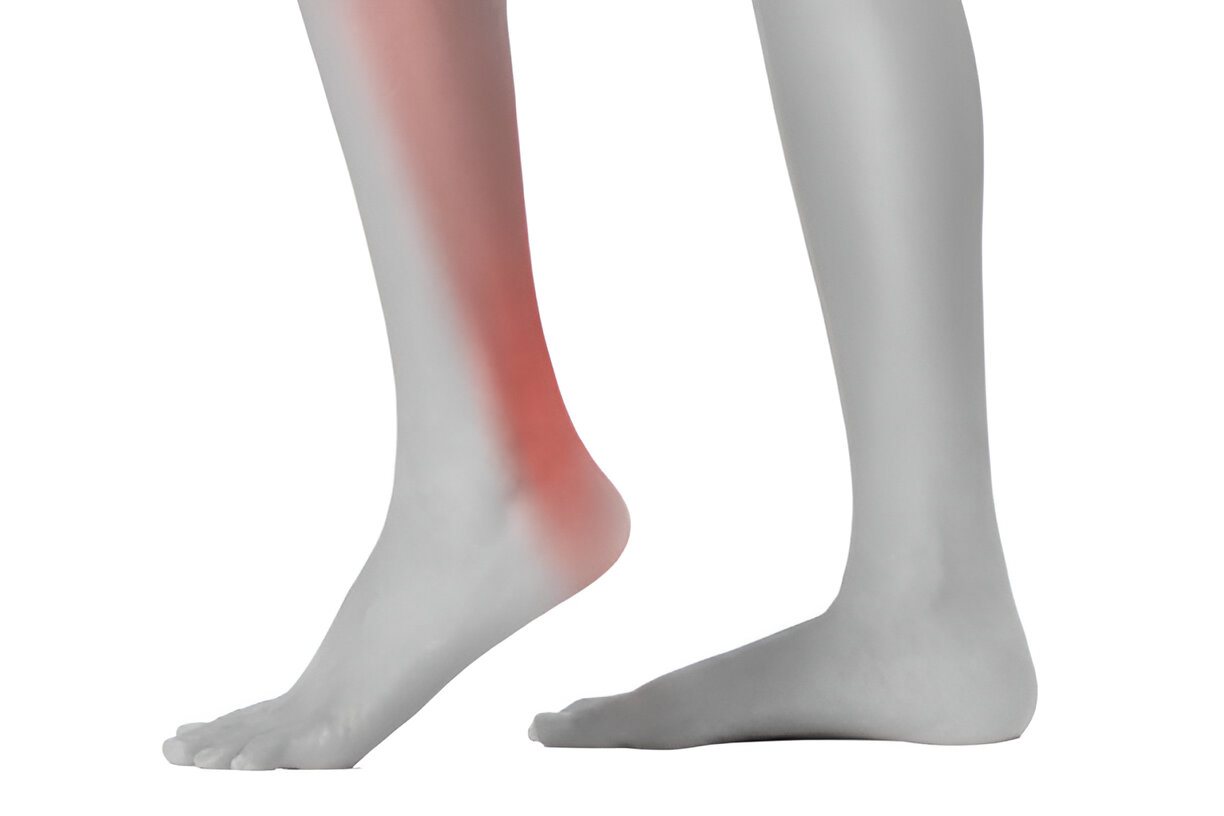

The Achilles tendon is the largest and strongest in the human body, connecting the calf muscles to the heel bone. Achilles tendonitis is a common overuse injury that occurs when this tendon becomes inflamed or degenerated. It is a painful condition that can significantly impact your mobility and quality of life if left untreated.
It develops gradually over time due to repetitive stress or strain on the tendon. It is commonly seen in athletes, particularly those participating in high-impact sports like running, jumping, or basketball. However, it can also affect less active individuals, especially as they age.
Several factors can contribute to the development of Achilles tendonitis, including:
Overuse and Overtraining: Engaging in excessive or high-intensity physical activity without adequate rest and recovery can strain the Achilles tendon, resulting in inflammation and degeneration.
Sudden Increase in Activity: Rapidly increasing the duration, frequency, or intensity of your physical activity, such as suddenly ramping up your running mileage or trying a new sport.
Improper Footwear: Wearing shoes with inadequate support or cushioning, or shoes that are worn out, can increase stress on the tendon during physical activity.
Biomechanical Factors: Structural issues such as flat feet, high arches, or leg length discrepancies can disrupt the body's natural weight and force distribution, increasing strain on the Achilles tendon.
Age: As you age, the Achilles tendon becomes less flexible and more prone to degeneration, increasing the risk.
Certain Medical Conditions: Conditions like rheumatoid arthritis, diabetes, or obesity can increase its risk by affecting the health and function of the tendon.
The primary symptoms of Achilles tendonitis include:
Pain and Discomfort: You may experience dull, aching pain along the back of the heel and lower leg, especially during or after physical activity.
Stiffness: The Achilles tendon may feel stiff, particularly in the morning or after periods of inactivity.
Swelling and Tenderness: The surrounding area may appear swollen and sensitive to the touch.
Decreased Range of Motion: You may have difficulty flexing or pointing your foot due to the pain and stiffness.
Weakness and Instability: The Achilles tendon may feel weaker, making it difficult to push off or bear weight on the affected leg.
Ignoring Achilles tendonitis can have serious consequences for your health and well-being. If left untreated, the condition can progress and lead to the following complications:
Chronic Pain and Discomfort: Persistent inflammation and degeneration can result in chronic, debilitating pain that interferes with your daily activities and quality of life.
Increased Risk of Rupture: The Achilles tendon can weaken over time, making it more prone to partial or complete tears serious and debilitating injuries that require surgery and a lengthy recovery period.
Altered Gait and Mobility: The pain and stiffness can cause you to alter your walking or running gait, potentially leading to further musculoskeletal problems, such as knee, hip, or back pain.
Reduced Physical Activity and Fitness: When left untreated, it can severely limit your ability to engage in physical activity, leading to a decline in overall fitness and cardiovascular health.
Increased Risk of Other Injuries: Compensating for the Achilles tendon injury by altering your movement patterns can increase the risk of developing other overuse injuries, such as plantar fasciitis.
Permanent Damage: If the condition progresses, it can undergo structural changes, including thickening, scarring, and calcification, potentially resulting in permanent impairment and loss of function.
Fortunately, Achilles tendonitis can be effectively treated with a combination of conservative and, in some cases, surgical interventions. The specific treatment approach will depend on the severity of your condition and the underlying cause. Common treatment options include:
Rest and Activity Modification: Reducing or temporarily stopping the activities that aggravate your problem can help reduce inflammation and allow healing.
Ice and Anti-Inflammatory Medications: Applying ice to the affected area and taking over-the-counter anti-inflammatory medications can help alleviate pain and swelling.
Stretching and Strengthening Exercises: Gentle stretching and targeted strengthening exercises can help improve flexibility, stability, and overall tendon health.
Orthotic Devices: Specialized shoe inserts or braces can help support the Achilles tendon and correct any underlying biomechanical issues.
Physical Therapy: A physical therapist can provide a comprehensive rehabilitation program, including manual therapy techniques, exercises, and other modalities to address the root causes.
Injection Therapy: In some cases, your healthcare provider may recommend corticosteroid or platelet-rich plasma (PRP) injections to help reduce inflammation and promote healing.
Surgery: If conservative treatments are unsuccessful, surgery may be necessary to repair or reconstruct the Achilles tendon in severe or chronic cases.
Ignoring Achilles tendonitis can have serious consequences, leading to chronic pain, reduced mobility, and an increased risk of more severe injuries. Early diagnosis and prompt treatment are crucial for preventing the progression of this condition and avoiding long-term complications.
By recognizing the causes, symptoms, and potential risks, you can take proactive measures to address the issue and protect your overall health and well-being. Remember, addressing the problem at the first signs of discomfort can help you avoid the more severe consequences and get you back to your active lifestyle as quickly as possible.
If you are experiencing persistent or worsening Achilles tendon pain, don't wait - schedule an appointment with us today. Early intervention can make all the difference in your recovery and long-term well-being.